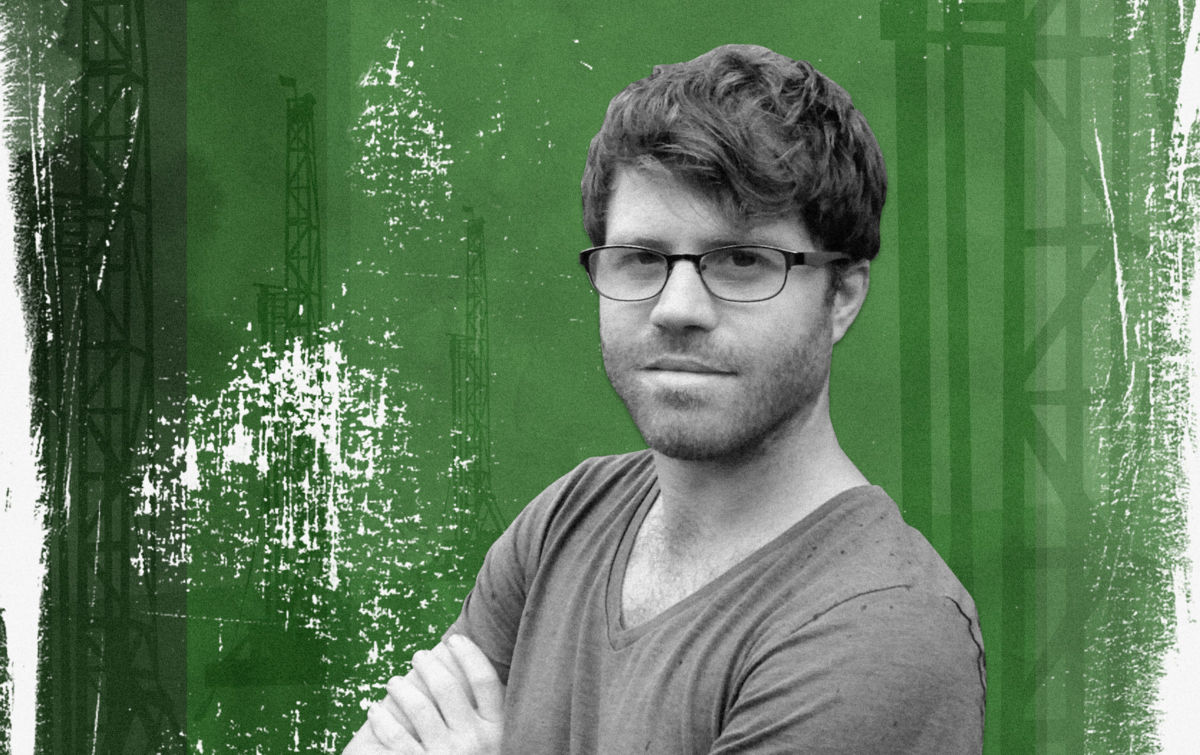Support justice-driven, accurate and transparent news — make a quick donation to Truthout today!
Fossil fuels have always been part of my world. As a kid, my grandfather put me on his knee and told me to learn my letters, for he had descended into the Appalachian coal mines well before high school so his children and grandchildren could have a better chance. Five or 10 miles in any direction, the power plants and steel mills of northern Ohio hummed along on a steady diet of coal. At night the blue flames from their smokestacks seemed to lick the sky. I had asthma. A lot of kids did.
Ohio was in transition when I entered college to learn my letters. Manufacturing jobs had gone overseas; growing concern about climate change and pollution had the coal industry spooked. Reporting for a local newspaper, I covered the Obama administration’s push to build “carbon sequestration” power plants in the Ohio River Valley, a bid to keep coal country afloat and address global warming at the same time. It didn’t work, and it didn’t have to. Fracking would change everything.
Fracking came to Texas and Pennsylvania first, and I was knee deep in the fracking beat at Truthout by the time that the oil and gas rush swept into Ohio. While many other media outlets were still debating whether fracking could be “safe,” I was following the industry’s footprints across the country, from mines in Wisconsin producing tiny silica particles for fracking fluid to the Pacific Ocean and Gulf of Mexico, where offshore fracking was deployed with little oversight and toxic chemicals were dumped into the sea. Back home, fracking was dividing tight-knit rural communities as some people got rich and others got sick. Earthquakes rumbled near fracking wastewater injection wells. I reported on it all, gaining new insights about the oil and gas industry and its growing chorus of critics along the way.
Slowly, other publications, and even some politicians, began to pay attention to the fossil fuel booms and busts occurring in small towns across the country. Try as it might, the fracking industry could not conceal its pollution. However, the United States was experiencing an energy revolution, and federal policymakers saw fracked gas as a “bridge fuel” that could help the country meet its climate objectives, all while leading the world in fossil fuel extraction. The industry increasingly channeled its wealth into politics, prodding our leaders along.
Thanks to fracking, the oil and gas industry rapidly industrialized huge swaths of the country. Methane leaks and air pollution from processing plants and refineries were linked to illness and climate change. Pipelines were routed through neighborhoods and Native lands, stoking fierce resistance. I reported on that, too.
After years of controversy and cover-ups, the government finally admitted that fracking could threaten drinking water. Climate disruption continued at a terrifying pace and created a global panic. Yet the industry doubled down, supporting anyone who would deny, deny, deny.
Now, a decade after I began reporting on fossil fuels, the mantra of “keep it in the ground” has gone from the environmental fringe to the political mainstream. Our investigative work on fracking in those early years helped bring national attention to the technology that would turn the U.S. into the top oil and gas producer of the 21st century — and we persisted until policy makers started listening.
As I reported this week, no less than 10 Democratic presidential candidates now support a national ban on fracking and a transition to a 100 percent clean-energy economy. The promise of a Green New Deal is no longer a progressive pipedream, but a real proposal in Congress that every Democratic contender for our nation’s highest office must pay homage to — even Joe Biden. From Keystone XL to the uprising at Standing Rock, activists are connecting the dots between racial and economic justice and the changing climate.
Of course, the fracking and mining continues, and exploiting our lands and water remains central to a number of regional economies across the U.S. However, large numbers of people now envision a very different future, including a critical mass of young people who will one day be making crucial decisions for people and the planet. I will continue to cover fracking and fossil fuels because I also dream about a better, cleaner world, and I believe we only have one chance to get it right. Thank you for your support.
Trump is silencing political dissent. We appeal for your support.
Progressive nonprofits are the latest target caught in Trump’s crosshairs. With the aim of eliminating political opposition, Trump and his sycophants are working to curb government funding, constrain private foundations, and even cut tax-exempt status from organizations he dislikes.
We’re concerned, because Truthout is not immune to such bad-faith attacks.
We can only resist Trump’s attacks by cultivating a strong base of support. The right-wing mediasphere is funded comfortably by billionaire owners and venture capitalist philanthropists. At Truthout, we have you.
Truthout has launched a fundraiser to raise $38,000 in the next 6 days. Please take a meaningful action in the fight against authoritarianism: make a one-time or monthly donation to Truthout. If you have the means, please dig deep.
